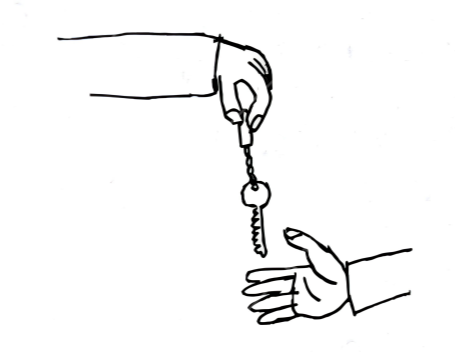Recently, President Trump announced a $100,000 fee for each new H-1B visa, responding to concerns that these visas for high-skilled immigrants are issued too freely. The fee is meant to leave “good” H-1Bs hired from American university campuses by the tech industry untouched, while discouraging “bad” ones brought in by outsourcing firms. But as I have argued in these pages before, “good” H-1Bs have more adverse impact than the “bad” ones. These foreign workers are typically sponsored by the employers for green cards, becoming permanent fixtures in the labor market, exacerbating the rampant age discrimination in the industry.
“Tech firms have free rein to hire foreign students.”
The new executive order will do nothing to address this problem. The proclamation specifically bars “the entry into the United States” of H-1B visa holders without payment of the fee. The key word here is “entry.” Crucially, the foreign students hired by the tech industry are already here. And their original entry was for education, not employment. Thus the tech firms have free rein to hire foreign students.
This is no accidental loophole. The attitude in Washington has always been that any reform measures should leave the “good” H-1Bs intact. Indeed, Secretary of Commerce Howard Lutnick stated that “all the big companies are on board. We’ve spoken to them.” Well, of course they are onboard, because the new policy effectively exempts them.
Any immigration lawyer, seeing the key word entry in the proclamation, would realize immediately that most international students will be exempt from the fee. Yet almost all of them gave “the sky is falling for the tech firms” interviews to the unsuspecting press.
It should be noted that the impact of the international students on US citizens and permanent residents is not limited to employment. Many universities share tuition revenue with individual departments, and since it is common for schools to charge higher tuition to foreign students, there is an incentive for the departments to accept more foreign students, at least at the graduate degree level, where individual departments handle admissions. Given the abysmal tech job market, any department seeking to exploit the foreign-domestic tuition differential is betraying domestic students.
H-1B visas are transforming America. Recently, in reading Paul Theroux’s cultural travelogue Deep South, I was startled to see the author put an H-1B spin on the large number of Indian immigrants operating motels, gas stations, restaurants and so on in the southern states. He attributes this in large part to ostensible medical personnel brought over through H-1Bs and other provisions in the 1990 Immigration Act, augmented by chain migration. This is arguably good for the South, but it is very far from the conventional image of H-1Bs as bringing in highly skilled workers to supercharge Silicon Valley.
A small but very important percentage of international students are indeed brilliant. Employer-sponsored green card programs should be used to bring in the best and the brightest, while leaving out those who are only used to undercut wages of Americans.
